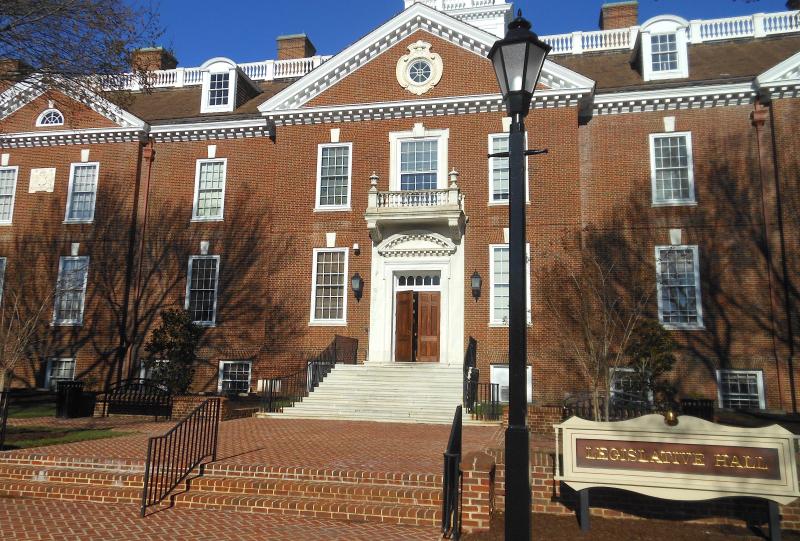Sussex legislators against legalization of marijuana
A bill legalizing marijuana in Delaware passed through the House Finance and Revenue Committee by a 9-2 vote May 10. The regulatory framework for House Bill 110 is modeled on existing laws governing the regulation and taxation of alcohol. Supporters of the legislation have estimated $22 million worth of annual revenue if passed.
So far, the eight states with legal recreational marijuana have done so through a referendum, but Delaware’s Constitution does not allow referendums. The bill contains new criminal penalties, which means it needs a two-thirds vote in the House and Senate before it gets to Gov. John Carney’s desk. The governor is on the record saying that he would like to see the state’s medical marijuana program up and running first.
It doesn’t appear any of the necessary votes will come from Sussex County’s 14 legislators, 13 of whom are Republicans. The other is Democrat and Speaker of the House Rep. Pete Schwartzkopf, who represents Rehoboth Beach.
House
Pete Schwartzkopf, D-Rehoboth, said with his background as a state trooper, there are too many questions left unanswered, and that the negatives of legalizing marijuana outweigh the positives. Citing the potential revenue, the House Majority Leader said there’s one reason to support the bill, but many reasons not to.
Daniel Short, R-Seaford, said the proposal is premature. He said Delaware has not fully implemented its medical marijuana law. Delaware should not rush into this, but rather wait and benefit from the experience of others, said the House Minority Leader.
Steve Smyk, R-Milton/Lewes, said the majority of constituents of his district have told him they do not support recreational use. He said he’s going to take the wait-and-see approach while other states figure out the pitfalls of recreational use.
Ruth Briggs-King, R-Georgetown, said she cannot support any legalization that increases the chances of other addictions or is a controlled substance as designated by the federal government. She said legalization is risky business, and she’s not willing to risk the health, safety, or welfare of Delaware citizens. The cost is much higher than the revenue, she said.
Rich Collins, R-Millsboro, said he does not want the young people of Delaware to get the idea that state government thinks another mind-altering drug is OK. Sure there will be a little money, he said, but this is just a common sense view.
David Wilson, R-Bridgeville, said, overwhelmingly, his constituents have urged him not to support legalization. He said he does not think it is in the best interests of the state. He also said he could not support any legislation in the future because he believes the potential negative impact to public health and safety outweighs any potential monetary benefit to state taxpayers.
Ron Gray, R-Selbyville, said he’s concerned about marijuana’s gateway drug possibilities. He said there could be a financial benefit for the state to a certain degree, but the social issues associated with legalization outweigh any benefit.
Timothy Dukes, R-Laurel, said detriment to society will be much greater than the benefit of revenue if marijuana is legalized. Plain and simple, he said, data from the states that have already legalized marijuana show accidents and use by minors has gone up.
Harvey Kenton, R-Milford, Harvey Kenton, R-Milford, said marijuana is a drug that could lead users to progress to harder, more addictive substances, noting it is still classified as a Schedule I controlled substance by the federal government. He said he does not see any reason for the state to wade into that uncertainty.
Senate
Ernie Lopez, R-Lewes, said it’s a case of bad timing. The state is in the midst of its worst addiction epidemic, he said, and its legislators should not be supporting another drug that can cause harm.
Brian Pettyjohn, R-Georgetown, said he hasn’t seen good, hard data on the economic benefits. On the flip side, he said, there’s also no data on governmental costs associated with abuse prevention and treatment.
Gary Simpson, R-Milford, said he’s taking the wait-and-see approach on what other states are going through. The Senate Minority Leader said he’s concerned with the medical impact associated with babies born to mothers who smoke marijuana.
Gerald Hocker, R-Ocean View, said his police and family friends have lobbied against the bill because of the power drugs can have on someone who is addicted. Referring to the bill passing the House committee, he said, it’s only gotten this far because of the money aspect.
Bryant Richardson, R-Laurel, said the state needs to be sending a better message, especially to its youth. He said, to date, there’s no way for police to test intoxication levels, and that worries him.




































































